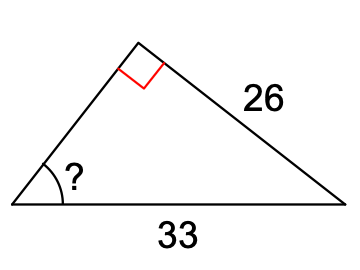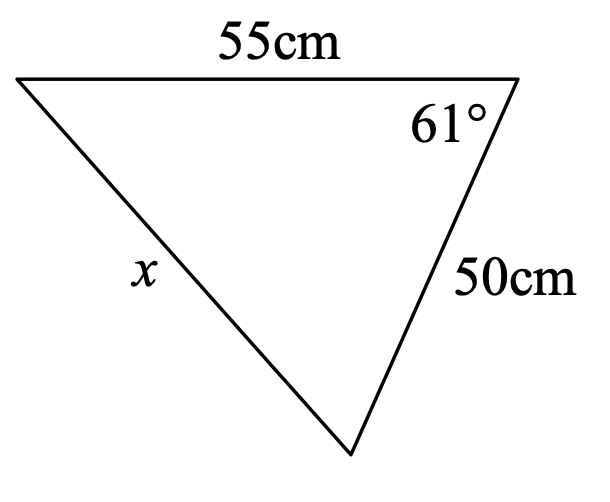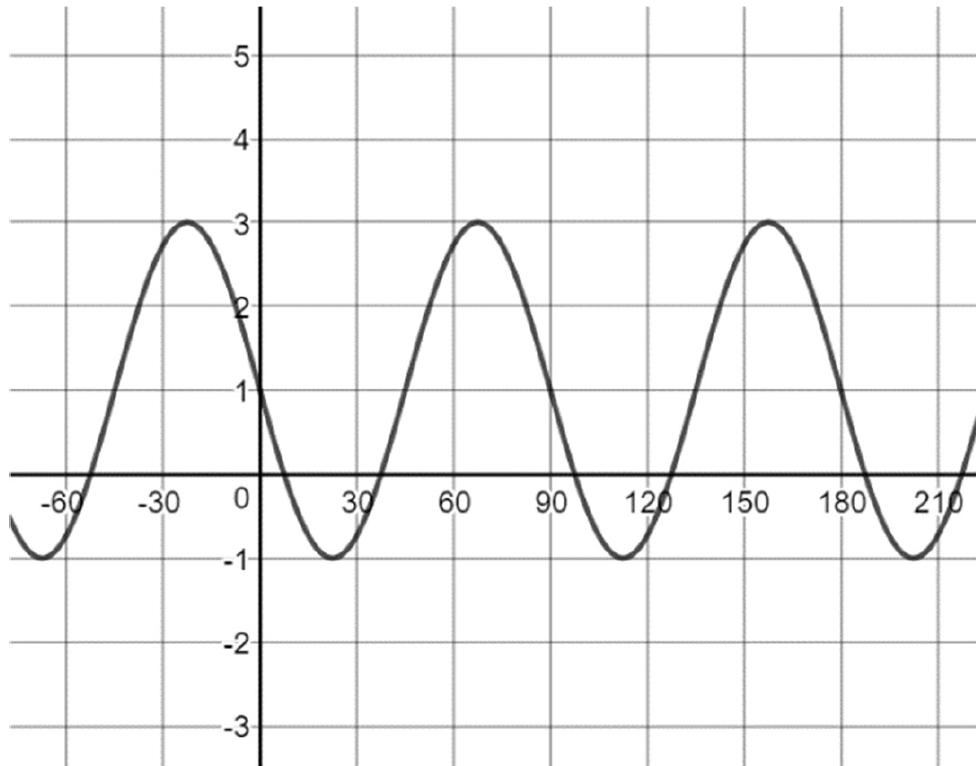When would x^-2 be larger then x^2?
0<x<1
Find the roots of the following quadratic equation:
y=x^2-2x-15
x=-3 and x=5
State restrictions
(x+6)/((x-3)(x+4)(x+6)
x=-6, x=-4, x=3
Solve for the missing angle.
x=52
Evaluate:
256^(3/4)
64
Simplify.
(2a^2b^3)^4/(4ab^2)
4a^7b^10
How many roots does the quadratic function
y=-4x^2+5x-1
2 real roots
Simplify
(x^2+3x-18)/(x^2-9)
(x+6)/(x+3)
Solve for x.

x= 53.47 cm
How many solutions would f(x)= 4x^2+7x-3 have?
2
Solve for x
5^(x-1)/25=1
x=3
State the transformations applied to the function:
f(x)=-4(x-1/2)^2+3
Reflection in the x-axis
Vertical stretch by a factor of 4
Horizontal shift 1/2 units right
Vertical shift up 3 units
Expand and Simplify. Then state restrictions
((x^2+x-2)/(5x+10) )times((x^2-25)/(x^2+2x-3))
((x+5)(x-5))/(5(x+3))
x=-3 x=-2
Determine the exact value(s) for theta if:
cot theta = -1
135 degrees and 315 degrees
Given
f(x)=3x+4 and g(x)=2x^2-1
Determine: 2f(x)+g(x)
2x^2+6x-7
State the transformations applied to the exponential function below.
f(x)=4/(2x+6)-5
Vertical stretch by a factor of 4
Horizontal compression by a factor of 1/2
Horizontal shift left 3 units
Vertical shift down 5 units
Find the maximum value of
y=-5t^2+40t+100
The maximum value is 180
Expand and simplify.
(4x^2-3x-1)/(3x^2-5x+2) divide (4x^2+9x+2)/(3x^2-4x-4
1
State the maximum and minimum of the trig equation
y=4sin(x+45)+5
max: 9
min: 1
The price of college tuition increases at a rate of 3.2% per year. If the current price of tuition is $2417, what was the price 5 years ago?
$2064.80
What are the base ordered pairs for an exponential function?
(0, undef)
(-1, -1)
(1, 1)
(undef, 0)
Determine the value for k for which the quadratic equation has one root
f(x)=9x^2+kx+25
k=30
Simplify and state restrictions
(3x)/(x^2-16)-(4x)/(x^2-2x-24)
(-x(x+2))/((x+4)(x-4)(x-6))
x=4, x=-4, x=6
Which sinusoidal curve (sine, cost, -sinx, -cosx) would you use to represent the graph below with NO 'd' value. 
y=-sinx
FINAL JEOPARDY
Determine an equation for the inverse of
g(x)= 5(x-3)^2-1
g(x)^-1 = +- sqrt(x+1)/5 -3